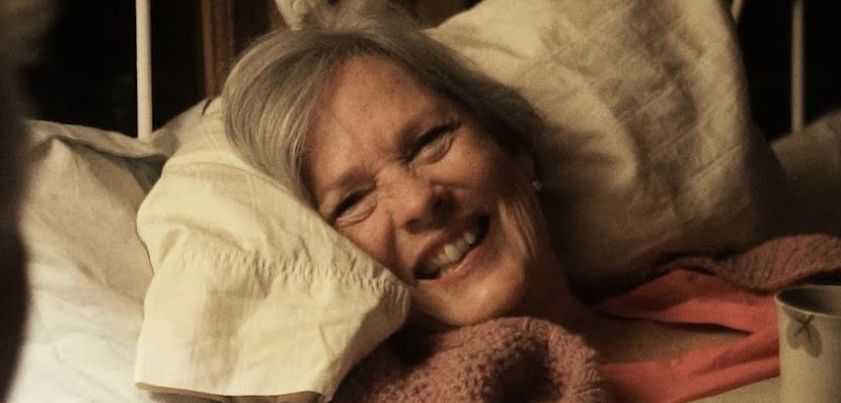 This story by Katherine Anne Porter exemplifies the proverb Hell hath no fury like a woman scorned. María Concepción, a pious Mexican peasant, is shattered when her husband has an affair with a fifteen-year-old neighbour and runs away with her to war. When the two return, the girl heavily pregnant, he expects their marriage to continue as if nothing had happened. Maria makes sure of this by brutally murdering the girl. During the police investigation the community covers up her involvement, perhaps sensing that true justice has been served. Themes include patriarchy, betrayal, revenge, moral vs. legal justice, feminism. More…
This story by Katherine Anne Porter exemplifies the proverb Hell hath no fury like a woman scorned. María Concepción, a pious Mexican peasant, is shattered when her husband has an affair with a fifteen-year-old neighbour and runs away with her to war. When the two return, the girl heavily pregnant, he expects their marriage to continue as if nothing had happened. Maria makes sure of this by brutally murdering the girl. During the police investigation the community covers up her involvement, perhaps sensing that true justice has been served. Themes include patriarchy, betrayal, revenge, moral vs. legal justice, feminism. More…
Archives
He
 The central theme of this poignant, rather dark story from Katherine Porter is a mother’s relationship with her devoted special needs son. The woman is obsessed with appearances. Although she professes greater love for him than her other children combined, one wonders if this is out of pity or, worse, a mere show for neighbors. Similarly, are her tears as she takes the boy to the County Home the result of losing him, a sense of failure/shame as a mother, and/or (as the narrator cruelly suggests) wishing he had never been born? Other themes: struggle against poverty, family, appearances, guilt. More…
The central theme of this poignant, rather dark story from Katherine Porter is a mother’s relationship with her devoted special needs son. The woman is obsessed with appearances. Although she professes greater love for him than her other children combined, one wonders if this is out of pity or, worse, a mere show for neighbors. Similarly, are her tears as she takes the boy to the County Home the result of losing him, a sense of failure/shame as a mother, and/or (as the narrator cruelly suggests) wishing he had never been born? Other themes: struggle against poverty, family, appearances, guilt. More…
Holiday
 In this disturbing story from Katherine Porter, a young woman suffering undisclosed “troubles” decides she needs a holiday. On the recommendation of a friend, she visits the farm of a German immigrant family. During her stay, she feels a special connection with a “crippled, badly deformed” serving girl. Later, she is concerned to learn that the girl is the parent’s older daughter who, because of her disabilities, has been consigned to a life of drudgery and is largely ignored by the otherwise loving family. Themes: family, gender roles, the beauty and power of nature, alienation, suffering, life and death, humanity. More…
In this disturbing story from Katherine Porter, a young woman suffering undisclosed “troubles” decides she needs a holiday. On the recommendation of a friend, she visits the farm of a German immigrant family. During her stay, she feels a special connection with a “crippled, badly deformed” serving girl. Later, she is concerned to learn that the girl is the parent’s older daughter who, because of her disabilities, has been consigned to a life of drudgery and is largely ignored by the otherwise loving family. Themes: family, gender roles, the beauty and power of nature, alienation, suffering, life and death, humanity. More…
The Grave
 In this coming of age story by Katherine Anne Porter, a motherless nine-year-old girl defies social convention by wearing similar day clothes to her brother, and wandering the woods freely with him. Two events bring about an epiphany in her life. Trading of an object she finds in an open grave for a gold ring brings about the first stirrings of womanhood. Seeing unborn kittens in the womb of a dead rabbit adds to the picture of what it is to be female. Themes include the cycle of life (youthful innocence, adulthood, birth and death), matriarchy, gender roles, poverty. More…
In this coming of age story by Katherine Anne Porter, a motherless nine-year-old girl defies social convention by wearing similar day clothes to her brother, and wandering the woods freely with him. Two events bring about an epiphany in her life. Trading of an object she finds in an open grave for a gold ring brings about the first stirrings of womanhood. Seeing unborn kittens in the womb of a dead rabbit adds to the picture of what it is to be female. Themes include the cycle of life (youthful innocence, adulthood, birth and death), matriarchy, gender roles, poverty. More…
Flowering Judas
 The major theme of this story by Katherine Porter is betrayal. Other themes include alienation, fear, corruption, despair and guilt. Laura, an idealistic American schoolteacher who traveled to Mexico to support the socialist revolution has a sense of impending doom. Trapped by the unwanted attentions of the corrupt, adulterous revolutionary Braggioni and with no love for the Mexican people, she feels lost and alone. Braggioni’s lifestyle is a betrayal of both his socialist ideals and marriage. In working for a socialist cause, Laura betrays her Catholic faith. Her sexual repression could also be seen as betrayal of her womanhood. More…
The major theme of this story by Katherine Porter is betrayal. Other themes include alienation, fear, corruption, despair and guilt. Laura, an idealistic American schoolteacher who traveled to Mexico to support the socialist revolution has a sense of impending doom. Trapped by the unwanted attentions of the corrupt, adulterous revolutionary Braggioni and with no love for the Mexican people, she feels lost and alone. Braggioni’s lifestyle is a betrayal of both his socialist ideals and marriage. In working for a socialist cause, Laura betrays her Catholic faith. Her sexual repression could also be seen as betrayal of her womanhood. More…
The Jilting of Granny Weatherall
 This story from Katherine Porter describes the disoriented thoughts and recollections of a feisty eighty-year-old (Granny Weatherall) as she lies dying in the house of one of her daughters. Satisfied with her life, she awaits a sign from God to say that her time has come. In her last moments, she likens the absence of such a sign to being left standing at the altar sixty earlier. Major themes are perseverance, motherhood and faith. Other themes: aging and death, loss (over the death of husband John and daughter Hapsy), betrayal and repressed anger (over being jilted by George). More…
This story from Katherine Porter describes the disoriented thoughts and recollections of a feisty eighty-year-old (Granny Weatherall) as she lies dying in the house of one of her daughters. Satisfied with her life, she awaits a sign from God to say that her time has come. In her last moments, she likens the absence of such a sign to being left standing at the altar sixty earlier. Major themes are perseverance, motherhood and faith. Other themes: aging and death, loss (over the death of husband John and daughter Hapsy), betrayal and repressed anger (over being jilted by George). More…
Theft
 The major theme of this story by Katherine Anne Porter is loss… a stolen purse, lost friendships and opportunities, loss in love, loss of youth, and loss of hope. The real “robber” in the story is the protagonist, a struggling, ‘not so young’ writer who prides herself on her trusting, easy-going, unmaterialistic nature. After receiving a letter ending a love affair and later having her purse stolen, she realizes that if she doesn’t take charge of her life and stop “letting things go”, she will end up with nothing. Other themes include apathy and self-delusion, alienation, love, rejection, guilt. More…
The major theme of this story by Katherine Anne Porter is loss… a stolen purse, lost friendships and opportunities, loss in love, loss of youth, and loss of hope. The real “robber” in the story is the protagonist, a struggling, ‘not so young’ writer who prides herself on her trusting, easy-going, unmaterialistic nature. After receiving a letter ending a love affair and later having her purse stolen, she realizes that if she doesn’t take charge of her life and stop “letting things go”, she will end up with nothing. Other themes include apathy and self-delusion, alienation, love, rejection, guilt. More…